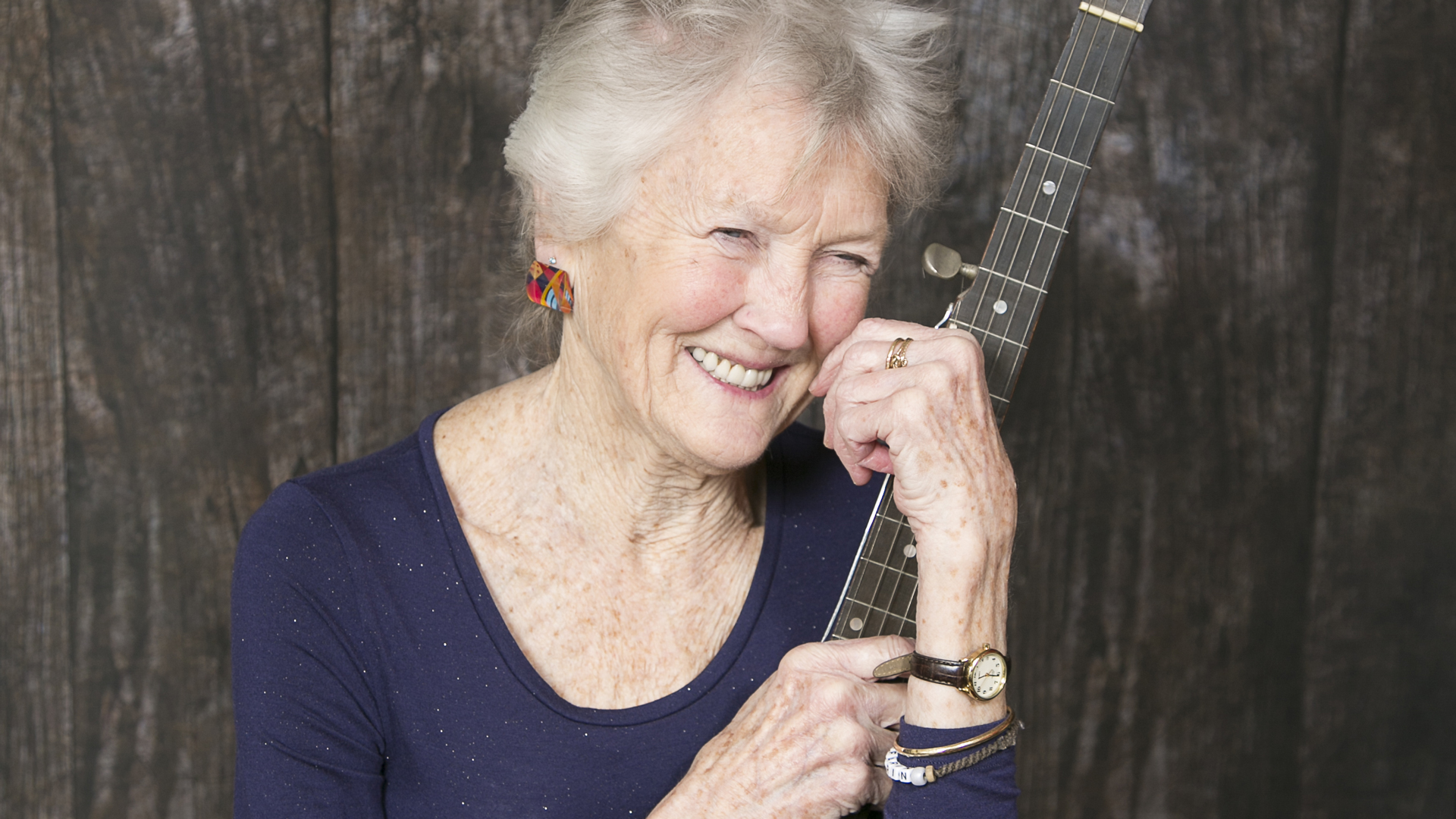I was intrigued by a lot of poetry as a teenager; I loved Shakespeare. My parents didn’t have a lot of time to spend with us but the special thing my family brought to me was folk music. I started learning guitar when I was six, and the banjo when I was 15. And I played the piano quite well, though I didn’t have the nerve to play for other people. But it was a long time before I started writing my own songs, not until I was 25. When I was a teenager I didn’t think of doing music for a living. I liked it too much. As a job it seemed like very hard work.
There were four of us kids. My mother [Ruth Crawford Seeger, regarded as one of the most important modernist composers of the 20th century] was a piano teacher, my father was a music administrator. We lived in a large house in a very select area of Washington DC which we couldn’t afford and we often went into debt. My father was a communist in the 1930s, though I didn’t learn that until I was 35. My mother was a closet feminist, which she had to dampen down when she married my father. We never talked politics in the house. We had black women working in the house because my mother taught 12 hours a day. The black women did not sit down at the dinner table with us. When I had live-in help with my children in Beckenham [in South London] everyone sat together for dinner. My father was intrigued by that when he came to visit.
My mother died of cancer when I was in my first year of college and my father had to retire because of McCarthyism. The family fell apart – my mother had been the love of my father’s life. Everyone had to move to my college town and live in a tiny apartment, but there was no money for my education. Then my father fell in love and married again and he wasn’t terribly keen on having his children around. So he decided I should go to Holland to live with my older brother. He was a bit of a selfish man. I didn’t really get on with my stepmother but I think that was because I was a terrible teenager. She wasn’t a bad person at all. If I could go back I would apologise to her profusely.
I hitchhiked around Holland, then Belgium, where I was picked up by a Catholic priest. I lived with him in his tiny little village, looking after a group of displaced children he’d brought back from East Berlin. He tried to convert me. I was cold and depressed and overworked, and I almost converted until some friends came to visit, saw I was ‘turning Catholic’, kidnapped me and took me in their little Fiat to Denmark. That’s where I was when Alan Lomax [the music ‘field’ recorder who had worked with her half-brother Pete Seeger] tracked me down and took me to London to sing and play banjo on a TV show he was making. I was a scruffy tomboy then but just before he introduced me to his friends his model girlfriend re-dressed me; she did my hair into a beehive and put make-up and earrings and high heels on me. And I tottered into that room and met a group of musicians Alan had very knowingly brought together. And that’s when I met [legendary folk singer/songwriter] Ewan MacColl.
Ewan MacColl fell head over heels in love with me. He chased me for three years. I thought he was funny looking. And he was 20 years older than me, with a wife and child. And that was a no-no for me. But he tracked me down and two days later we started an affair. His wife had already been unfaithful twice and he had been unfaithful too. She loved him though, the way he wanted to be loved. Which I didn’t. I loved him but I wasn’t mad about him. I wasn’t intending to stay with him or marry him. In the end though, he was the right person for me, definitely; the father figure my father had never been. And he was very intelligent and fascinating to be with.
One of the first songs I wrote was I’m Gonna Be an Engineer. After that women started asking me to perform other feminist songs so I had to start writing them! And I started researching the issues and became a radical feminist. The more I read the more I realised how privileged I was. And how unequal my life at home with Ewan was. I did the shopping, the cooking, all that. After Ewan died I got more and more passionate about ecology alongside feminism and I realised how much men had destroyed the Earth. Women look after things. We don’t take our sons out and dress them as soldiers. It’s men who are violent. It’s men who torture. It’s men who rape, and kill and go into schoolyards with guns.









